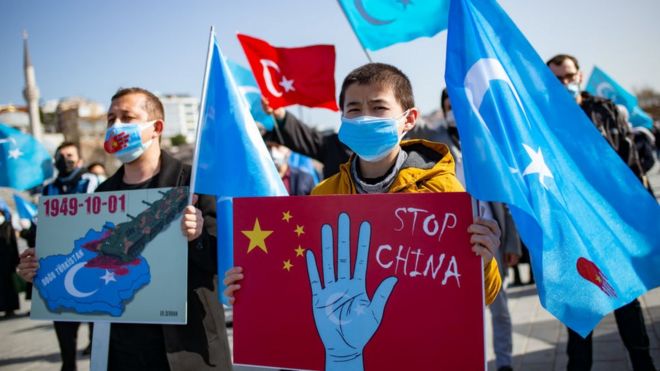The situation of the Uyghur population in the Chinese region of Xinjiang has been largely unclear since 2017. Researchers are now seeking an approach using remote ethnography methods as part of an EU project.
The autonomous Uyghur region of Xinjiang (China) is located in the heart of Central Asia and at the crossroads between different cultures. Throughout its history, it has produced a unique cultural mix and a complex demographic mosaic.
Xinjiang is home to the Muslim Uyghurs, who are an ethnic minority in China. The region is the scene of severe human rights violations: There are reports of mass detentions of Uyghurs and other ethnic groups in re-education camps, coercive labour and forced sterilisations.
But the picture of the actual situation in Xinjiang remains unclear. This is partly because access to the region has been drastically restricted since 2017. Since then, even researchers have no longer been able to visit the region.
European Union supports project
Professor Björn Alpermann, a sinologist from Julius-Maximilians-Universität Würzburg (JMU) in Germany, has been observing the situation of the Uyghur population in Xinjiang for a long time. Important findings come from ethnographic field research, which scientists were still able to conduct until the 2010s. “Today, however, most types of field research would be highly questionable under the given circumstances,” says Alpermann.
The JMU sinologist has therefore teamed up with other researchers to observe the region from afar: with Rune Steenberg from Palacký University Olomouc (Czech Republic) and with Vanessa Frangville from the Université libre de Bruxelles (Belgium). Their joint project “Remote XUAR” is funded by the European Union.
Remote research and interviews
The EU project focuses on remote research methods. These include internet-based document analyses, discourse analyses in social media as well as satellite-based remote sensing. Satellite data can not only be used to analyse places such as re-education camps, factories or mosques in detail, but also offer access to socio-spatial questions of urbanisation and land use. In addition, there are interviews with people who have left China and the Xinjiang region in recent times.
“We do not only want to observe, archive and critically analyse the everyday changes in Xinjiang. It is also our goal to contribute to the development of remote research methods,” says Björn Alpermann.
To this end, the project participants have developed their own approach, which they call Remote Ethnography. They are building a research team that shares material and findings within a scientific community on a weekly basis. The project aims to work with media, policy makers and civil society to raise awareness as well as the quality and objectivity of reporting and discourse on Xinjiang and the Uyghurs.
Methods workshop and film evening
In connection with the project, a methods workshop will be held at JMU from 19 to 22 June 2023. It will bring together some leading experts to present state-of-the-art remote research methods and discuss how they can be used for Xinjiang studies. Among the topics will be analyses of political documents, remote sensing and digital ethnography.
In the context of the workshop, the film “Nikah” (original with English subtitles) by Mukkadas Mijit and Bastien Ehouzan will be shown in cooperation with the JMU China Competence Center on Tuesday, 20 June 2023, at 6 pm. It is about 27-year-old Uyghur Dilber, who is under pressure from her family that she should finally get married. Her friend Gulnur, who lives in Paris and with whom she shares her daily life by phone, suggests a solution.
After the film there will be a panel discussion with Mukkadas Mijit, Vanessa Frangville and Rune Steenberg, moderated by Björn Alpermann. The event will be held in English and is open to the public; the venue is room 00.006 in the Graduate Schools building at Beatrice-Edgell-Weg 21 on the Hubland North Campus.

































